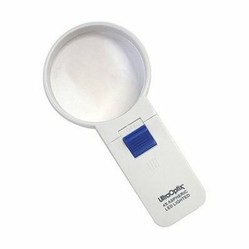The precious gift of sight, which brings light and color into our lives, is worth all the attention we can focus toward achieving and maintaining healthy vision. Our eyes are long-range preceptors. All organs give the purest part of their energy to the eyes, helping to create their alertness and brightness. Our eyes are much like a camera. The lenses at the front of the eye collect and focus light rays. The colored iris works as an aperture. The retina is compared to film, which captures the image. Tears are fluids that help to wash the lens with lysozyme, a powerful germ killer. Crying can actually be a therapeutic way to clean and heal the eyes! Keep in mind that eye problems are usually a long time in the making and consistency is needed to allow natural remedies to demonstrate their full benefits. Let’s get started!

Treating Diseases of the Eye
by John84
Diseases of the eye can be cured with herbs and other natural remedies. Know more about these amazing wonders.
Herbal Eyewashes
Herbal eyewashes have long been used to strengthen the eyes and improve vision. To make an herbal eyewash, pour 1 cup (235 ml) of boiling water over 1 heaping teaspoon (5 g) of herb such as cornflower, eyebright, and or fennel seed. Allow to steep for 15 minutes. Strain well (through a clean coffee filter) and wait until the tea is lukewarm to use. Make fresh each day to avoid introducing any bacteria into the eyes. Herbs that can be used as eyewashes include chamomile, cornflower, eyebright, fennel seed, and violet leaves.
Herbs For Sharpened Eye Sight
During World War II, Air Force pilots were given bilberry jelly, which is actually a type of blueberry, to improve their night vision. Bilberry extract is even available in capsule form these days. Take as directed on the bottle daily.
Also helpful are goji berries. These sweet, reddish dried berries are considered helpful for blurred and poor vision. I like to use goji berries like raisins, mixed into cereal or added to trail mix. Consume 1/8 cup (15 g) daily.
The herb eyebright has a long history of use in treating eye disorders. The French often refer to this herb as “casses lunettes,” which means “break your glasses.” Ancient peoples found this herb slightly resembles an eye and used it for poor sight. Eyebright has a cool, acrid, slightly bitter taste that stimulates liver function, thus improving blood supply to the eye. Eyebright can be taken internally in tea, capsule, or extract form using a dose of either 2 to 3 times daily. Many have also found that using the strained tea as an eyewash helps to reduce eye inflammation.
Other Herbs That Benefit Our Eyes
Other herbs that benefit the eyes when included in teas and tinctures (one dose taken three times daily) include the following:
- Barberry root, which contains the alkaloid berberine, long used for eye infections and redness.
- Calendula flowers, which can be used in a compress or as drops and are anti-inflammatory and a circulatory stimulant.
- Ginkgo, which improves circulation to the retina, tones capillaries, and increases visual acuity.
- Nettle and schizandra berries, which improve vision.
- Parsley leaf, which is great for eyestrain.
- Antiseptic and nutritive violet leaves, which can be used as a compress or in an eyewash for sore eyes.
You might also like
Tips for living with low vision blindnessChallenges low vision, and legally blind people learn to live with every day ...
Blind Veteran Living and Dealing with Low VisionVeterans learn living, manual, orientation and mobility skills that make deal...




 How to deal with Anxietyon 10/20/2015
How to deal with Anxietyon 10/20/2015
 What Causes Anxiety and Stresson 10/20/2015
What Causes Anxiety and Stresson 10/20/2015
 Understanding How to Stop Tooth Painon 10/20/2015
Understanding How to Stop Tooth Painon 10/20/2015
 What is Metatarsalgia - Diagnosis and Treatmenton 09/10/2015
What is Metatarsalgia - Diagnosis and Treatmenton 09/10/2015


Comments
Interesting. I thought you would have written about cataracts and macular degeneration as well, but the info you gave was nice too.